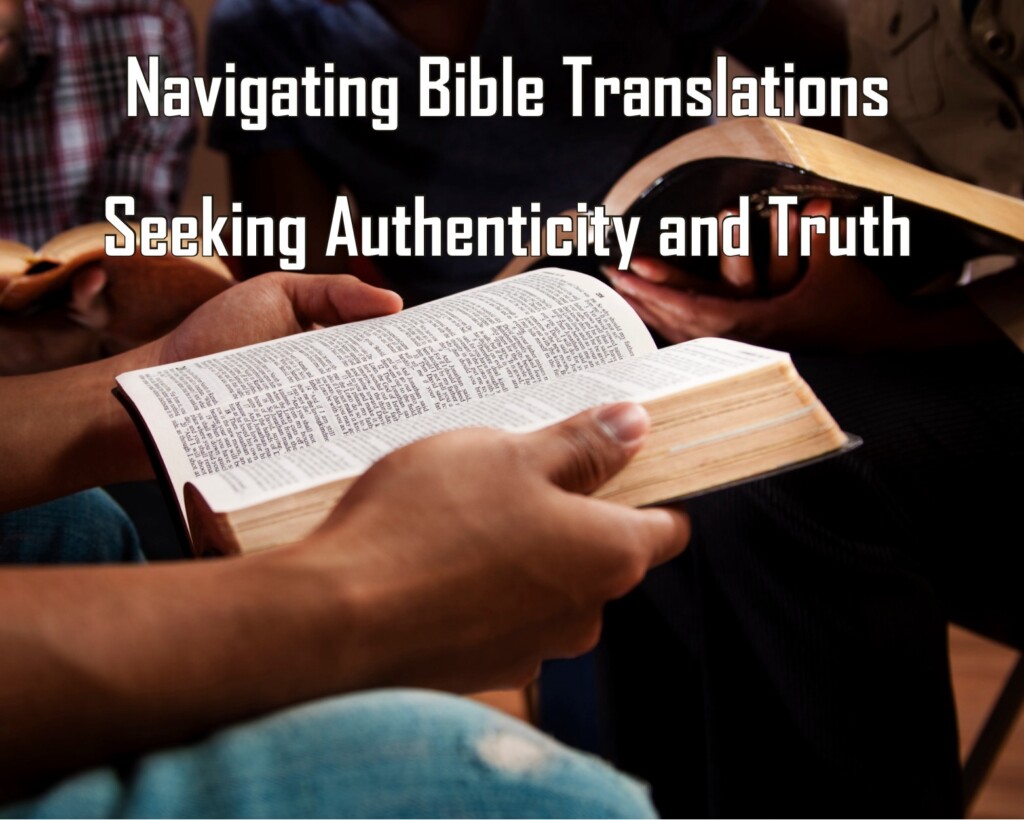As Christians, the Bible is our foundational text, guiding us in faith and practice. However, with numerous translations available, it’s crucial to discern which versions stay truest to the original manuscripts and which may lead us away from the intended message. This article explores the various Bible translations, focusing on their authenticity and adherence to the original texts.

Understanding Bible Translations
The Challenge of Translation
Translating the Bible from its original languages (Hebrew, Aramaic, and Greek) is a complex task. Each translation involves a degree of interpretation, as translators seek to convey ancient texts in modern languages.
Literal vs. Paraphrased Translations
Literal translations aim to closely follow the wording and structure of the original texts. Paraphrased versions, while easier to read, often take more liberties in interpreting the text, which can sometimes lead to deviations from the original meanings.
Translations That May Deviate from Original Texts
The Message
“The Message” is a paraphrased translation that aims to present the Bible in contemporary, conversational English. While it’s accessible, its paraphrased nature means it can stray from the precise wording of the original scriptures.
The Living Bible
Similar to “The Message,” “The Living Bible” is a paraphrase, not a direct translation. It reflects the translator’s interpretation of the text, which can sometimes introduce personal biases.

How to Identify Authentic Translations
Research the Translation Method
Look for translations that use a formal equivalence approach, which strives for word-for-word accuracy. These translations are generally more reliable in conveying the original texts.
Check the Translation Team
A diverse team of translators from various theological backgrounds can help ensure a more unbiased translation.
Consult Biblical Scholars
Seek insights from biblical scholars and theologians, especially those who specialize in biblical languages.
Recommended Bible Translations
New American Standard Bible (NASB)
The NASB is known for its strict adherence to the original languages, making it one of the most literal translations available.
English Standard Version (ESV)
The ESV combines accuracy with readability, maintaining a balance between word-for-word and thought-for-thought translation techniques.
King James Version (KJV)
The KJV, while using older English, is praised for its literary beauty and close adherence to the original texts. However, its archaic language can be challenging for modern readers.
New International Version (NIV)
The NIV is a balance between readability and accuracy, making it one of the most popular translations. It’s a thought-for-thought translation that seeks to convey the original meaning clearly.
What to Avoid and What to Do
Avoid Sole Reliance on Paraphrased Translations
While paraphrased Bibles can be helpful for casual reading, they shouldn’t be your primary source for study or doctrine.
Cross-Reference Different Translations
Comparing different translations can provide a fuller understanding of the text.
Study the Historical and Cultural Context
Understanding the historical and cultural background of the biblical texts can provide deeper insights into their meanings.
Pray for Understanding
As stated in James 1:5, “If any of you lacks wisdom, let him ask God, who gives generously to all without reproach, and it will be given him.” Pray for wisdom and understanding as you study the Bible.
Choosing the right Bible translation is crucial for a true understanding of God’s Word. While no translation is perfect, some are more faithful to the original texts than others. By researching, consulting scholars, and praying for guidance, you can find a translation that brings you closer to the truth of the Scriptures.
Plans With Jesus offers a variety of articles that delve deeper into understanding the Bible and the Christian faith. Here are some articles from their site that complement the discussion on Bible translations:
- Gratitude in Simplicity: A Christian Perspective on Life’s Blessings This article explores the importance of gratitude in the Christian journey, reminding us to appreciate the simple blessings in life. Read more.
- Understanding the Afterlife: Insights from the Bible Gain profound insights into the nature of life after death, the concept of Hades, and the final judgment as depicted in the Bible. Read more.
- Personalize Your Faith Journey: Custom Engraved NIV Study Bibles Discover how a custom engraved NIV Study Bible can add a special touch to your faith journey, making it a cherished keepsake. Read more.
As an Amazon Associate we earn from qualifying purchases through some links in our articles.



